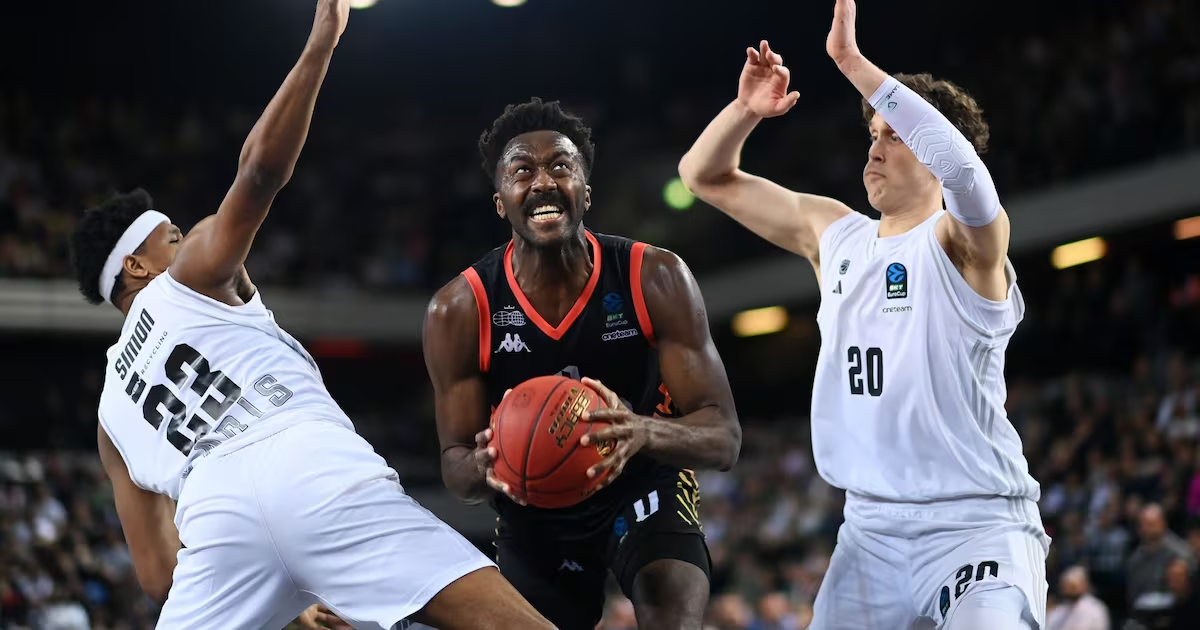Neel Sachdev and Stephen Lucas were a pair of powerful private equity lawyers who drove the growth of Kirkland & Ellis in London for nearly a decade.
Sachdev helped bring Lucas into the firm and with Lucas the de facto head of the firm’s growing UK business and Sachdev operating as the power behind the throne, together they oversaw its breakneck City growth.
Kirkland rocketed to become the world’s largest law firm on the back of the global private equity boom.
But the pair fell out in recent years, with relations deteriorating to the point they were barely talking, people familiar with the situation told Private Equity News’s sister title, Financial News.
Kirkland’s hire of Paul Weiss London head Alvaro Membrillera last month was the spark that turned the internal squabbles into an open rift.
Sachdev’s friend and ally, Swedish private equity M&A partner Roger Johnson, fought against Membrillera’s hire, which was pushed through without most London partners being informed, people familiar with the matter said.
The firm’s management then kicked out Johnson, saying they had heard he was in talks with Paul Weiss and suspecting him of planning a team move.
Johnson’s ousting sparked the exit of Sachdev and a team of partners in the UK and US to join Paul Weiss, which FN revealed on 14 August.
Sachdev is one of London’s best-known and most successful finance lawyers. He has a book of business worth tens of millions of dollars and close relationships with buyout firms such as Warburg Pincus, Investindustrial and Bain Capital.
His defection to Paul Weiss is one of the biggest transfers in the City legal market for years and a move that puts the firm on the map in London.
Simmering tensions within Kirkland’s London operations exploded into the open last month with a series of major defections from the firm.
Exit Johnson
Johnson joined Kirkland in 2016 from Magic Circle law firm Linklaters. He built an enviable practice at Kirkland, forging close relationships with private equity firms such as EQT and Triton. He was also one of the firm’s most productive partners in London, people familiar with the matter said.
His shock ousting, first reported by FN on 2 August, followed the hire of Spanish M&A lawyer Membrillera. Kirkland’s London partners were told at the end of July that Membrillera was joining the firm.
The firm’s Chicago-based chair Jon Ballis and its Houston head Andrew Calder helped drive the move alongside key partners in London, people familiar with the matter said.
Membrillera is joining Kirkland on a package worth more than $10m per-year, according to a person familiar with the situation. His number two, Adam Wollstein, who is also joining from Paul Weiss, is set to earn more than $3m.
READ Want more on law? FN’s weekly newsletter is here
Membrillera is a highly rated M&A partner who counts private equity firm KKR as a key client. He was also Calder’s former colleague at Simpson Thacher.
As head of Paul Weiss’s London office, Membrillera was playing a key role in the firm’s planned City expansion and was involved in the scheme to hire partners from Kirkland, people familiar with the matter said.
Calder, a Scot who trained with Herbert Smith in London, joined Kirkland in 2014 from Simpson Thacher to launch the firm’s Houston office. He has become one of Kirkland’s most powerful partners, with a seat on its executive committee, and is tipped as the firm’s likely next leader by current and former partners — although Ballis still has a long time left to run on his term.
Johnson argued with Ballis about the decision to hire Membrillera without consulting the wider UK team, according to people familiar with the situation.
On 1 August, Ballis called Johnson to tell him that he had heard that he was in talks to join Paul Weiss and asked him to leave Kirkland with immediate effect.
Johnson was suspected of planning a team move, people familiar with the matter said. “If you are a senior person trying to effect a team move, you get terminated,” one partner said.
Contagion
Sachdev was also in early-stage talks to join Paul Weiss, according to people familiar with the matter.
The ousting of his ally and friend Johnson came as a shock to Sachdev, the people said, and hastened his exit to Paul Weiss.
“Johnson and Sachdev weren’t collaborative, they worked in old-school silos and management was sick of it”
In the aftermath of Johnson’s exit, Kirkland tried to keep Sachdev on board, knowing that he was close to Johnson and upset by his dismissal, two Kirkland partners said.
However, another Kirkland partner said the firm’s leaders were happy to see the pair depart.
“Johnson and Sachdev weren’t collaborative, they worked in old-school silos and management was sick of it,” one Kirkland partner said.
Sachdev resigned on 13 August to join Paul Weiss alongside debt finance partner Kanesh Balasubramaniam and high-yield finance partners Matthew Merkle and Deirdre Jones in London.
Paul Weiss also took top US debt finance partner Eric Wedel and his team, including partners Ben Steadman, Caroline Epstein and Matthew Leist.
Johnson’s ousting was a signal that Sachdev had lost the power struggle within Kirkland’s London office, according to one partner.
“When Roger was told that you are no longer welcome, Neel got the message that he had finally lost the overall battle,” another Kirkland partner said.
However, a former Kirkland partner argued that pull factors were more important in Sachdev’s move than internal politics at Kirkland: “Neel hasn’t left for any reason other than he sees an opportunity, Neel is super-smart and super-driven to make money — that’s why he has gone.”
The rise of Sachdev
Sachdev, who grew up in Clerkenwell in north London where his father ran a corner shop, is not your typical corporate lawyer. A big character with long hair and an exuberant dress sense, he stands out in the straightlaced world of City law.
At Kirkland, he had helped oversee the hiring of Lucas from Weil Gotshal in 2014. Together, the pair had driven the growth of Kirkland’s London transactional practice, hiring a string of partners from Linklaters and Freshfields including Johnson, real estate private equity specialist Matthew Elliott and M&A heavyweights David Higgins and Adrian Maguire.
Sachdev had no official management role at the firm, but was a powerful voice within the firm’s London headquarters in the Gherkin.
Lucas, by contrast, sits on the firm’s global governing executive committee alongside Higgins and Elliott in London.
“Neel wanted to be the power behind the scenes through Stephen,” a Kirkland partner said.
The fallout
Lucas, with Sachdev in the background, continued to run Kirkland’s London office as it went from a small finance-focused outpost to one of the largest law firms in the City. But as it did so, the once-dominant finance group declined in importance as other practices grew.
“Law firms are a p***ing contest of who has got the biggest book,” said one ex-Kirkland partner. “The sands shifted; the power moved away from them.”
Some of Lucas and Sachdev’s fellow partners began to resent what they saw as micromanaging on issues such as pay and promotions and there was a backlash, according to people familiar with the situation.
“Law firms are a p***ing contest of who has got the biggest book”
In the aftermath, Sachdev and Lucas fell out. The partnership that had driven the firm’s growth in London had split.
Sachdev, unhappy, started coming to the office less and avoided meetings with Lucas, people familiar with the situation said.
The firm’s London finance practice became “totally dysfunctional”, one ex-partner said, with some partners on Team Lucas, others on Team Sachdev, while a third group tried to stay neutral, the people said.
Sachdev was also unhappy with Kirkland’s direction and argued it had lost the entrepreneurial streak that had characterised it in its earlier growth days, people familiar with his thinking said.
In addition, he had lost out from the change of management at the top of the firm: Sachdev was close to former chair Jeff Hammes, but did not have the same relationship with Ballis, who ran the firm from 2020, current and former Kirkland partners said.
Sachdev tried to push for a management shake-up in London but was unsuccessful, one Kirkland partner said.
“He made repeated demands to management, saying: ‘I want governance changes in London,’” they said. “The rest of us were saying: ‘It works fine.’”
The Paul Weiss effect
Paul Weiss is a legal powerhouse in the US with strong links to private equity firms such as Apollo and average profit per equity partner of $5.7m. But it has been a sleeping giant in the London legal market since it launched in 2001.
The firm hired Membrillera from Simpson with great fanfare in 2017, but did not continue to build. Its London office remained a small outpost with just a handful of lawyers.
There has been speculation in the City legal market for years about if and when Paul Weiss would push the button on a London growth strategy.
People familiar with Sachdev’s thinking said the opportunity to build from the ground up at a top US firm and to escape what he saw as increasing bureaucracy at Kirkland was an attractive one.
The new Paul Weiss London team is also getting a strong finance base from debt finance partner Balasubramaniam, who moonlights as a classically trained operatic tenor; highly rated bond specialist and baseball fan Merkel; and capital markets partner Jones.
The firm is expected to embark on a large build-out in London, adding lawyers in practices such as competition law, litigation, public M&A and tax, people familiar with the matter said.
Johnson is one obvious potential candidate, although he has also been speaking to other top US law firms in London, the people said.
Life goes on
Kirkland partners say that life will go on as normal now.
“From a personal level, I’m sad,” one Kirkland London partner said. “But we are a huge firm with revenue of $6bn-plus, we are at the stage of maturity where the departure of a single individual tends not to have an impact on the firm as a whole.”
“We are just sticking to the fundamentals of what we do — people come and go,” another said.
“It doesn’t necessarily move the needle for us,” said a third. “I suspect they have been offered more money and are looking to shape their firm and practice in their own image.”
Sachdev’s move to Paul Weiss is viewed as a major coup for the firm, with one former Kirkland partner saying “there is no other hire they could make in the London market that would have as much impact”.
Why did he go?
Two Kirkland partners said one of the key drivers of Sachdev’s exit was his loss of influence in the London office in recent years.
“He was drawn by the prospect of a fresh start somewhere where he could shape the firm to his own desire,” one said.
“Sachdev has been trying to regain his power and he has failed. This is the end result of him losing the battle for leadership of the office,” another said.
A third Kirkland partner said they thought pull factors were more important than push factors in Sachdev’s move.
Kirkland has always been a political firm, they said, and the opportunity to build from the ground up at a top US legal brand was too good to pass up.
Another Kirkland partner said it was hard to know why Sachdev and his group left. “People move on and have different drivers, often they are very complicated,” they said. “People should think what they like about their reasons for leaving, and we will get on quietly with our business.”
From Financial News
https://www.penews.com/articles/revealed-the-bust-up-between-kirkland-and-elliss-ma-stars-20230906




